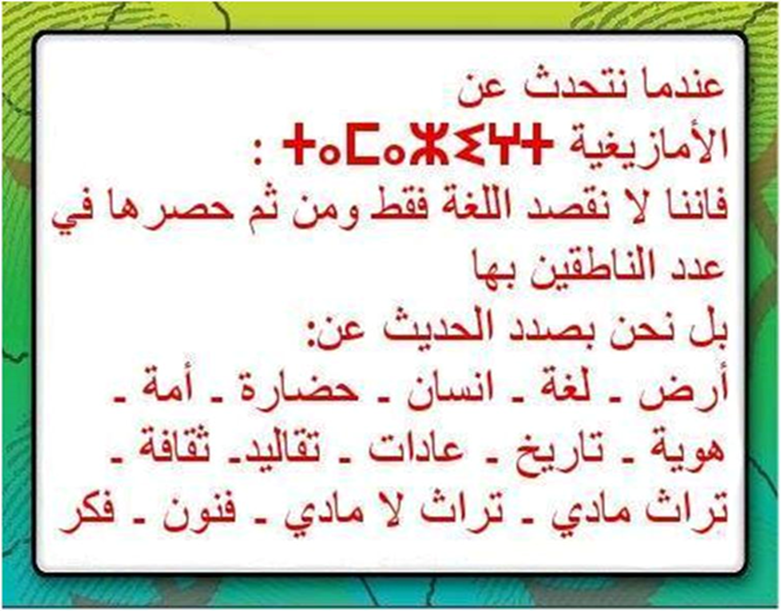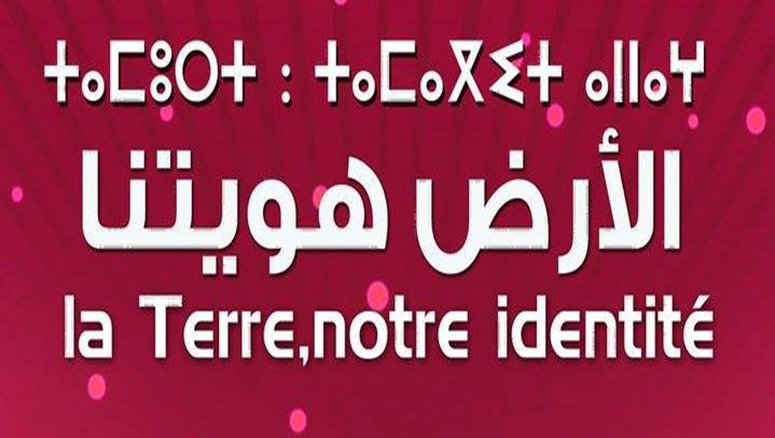Identity and Arabization 1

Regarding the issue of identity and Arabization, some may ask, saying, “What is the alternative?” The alternative exists, but before presenting it, we must pause at some issues because they need to be clarified.
Some say: The conservative Amazighs are a minority and therefore they must submit to the Arabized Amazighs, and this lie is a lie that the majority believed..
Therefore, it must be stated that the entire nation is Amazigh, but there is a large community in it that Arabized in a common, not eloquent, way, and there is another community in it that preserved the Amazigh language, and this, according to our ambassador to the United Nations in Geneva, is four million in Kabylie, eight million in the Aures, and a million in the south, and the total is thirteen million people (old statistics). But the Ambassador did not give us the numbers for the center and the west.

There are many Amazighs who maintain their Amazigh language until now, such as the Bani Hawa, the Shinawa, and the Bani Bou Said, the tribe of the former president, Mr. Ahmed Ben Bella. Therefore, a significant majority still speaks the Amazigh language, even more than speaks the dialect, according to the latest population census. This is the truth, which is the truth.
Now we can talk about the educational alternative in Algeria in these points:
Adopting a national reference consistent with our religion
Openness to all human cultures
It is necessary to introduce the Amazigh language into all levels of school in a real manner and not just formally

We have shown in the previous lines the distance of reference of the educational system in Algeria from the historical and social reality of this country. Indeed, there is an exclusion of it with a known political will since the restoration of independence. The student at any level is the victim, and the foreigner, when he examines the Algerian school content, always asks about the Algerian in it and does not ask about the foreigner and asks who. The customs, traditions, crafts, and industry of this country, and he does not ask about the customs and traditions of the Arabian Peninsula, and I refer everything in it to the contents of reading, texts, and history lessons in our schools at various levels, where he sees the sciences of the Arabs, the story of the Bedouins, the preference of the Arabs over the West, and so on..
This is political talk, not scientific, so fear God in our children, politicians!!
As for the second point, which is openness to human culture, the examiners see that the Algerian educational content is devoid of it, despite its importance in openness of mind and richness of thought. We do not find anything that deals with Japanese, Chinese, or Malaysian culture, and we do not find anything that deals with Negro culture, at least as Africans. We know nothing about the American Indians and Eskimos, and we do not know anything about the culture of the Persians and India, despite its importance.

As it was necessary to include literary texts from the culture to get to know their societies, we thought about what was appropriate for them and consistent with our true religion.
Source: websites

